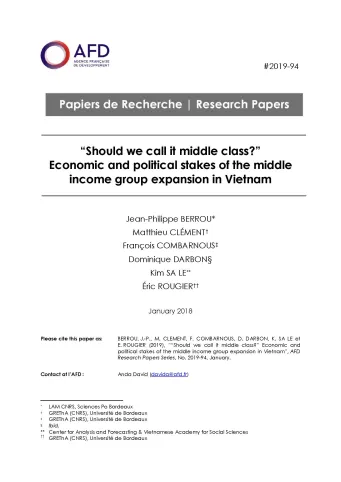Share the page
Economic and political stakes of the middle income group expansion in Vietnam
Published on

Middle class expansion in formerly poor countries has become the focus point of business groups, development banks and national governments over the latter decade. By naturalizing an income group into a social class with political agency, they misapprehend what exactly are these “people in the middle” and what exactly are their margins of influence on the economy and public policies. By combining microeconomic data on economic and social characteristics of middle income earners taken from the national representative living conditions survey and primary data on subjective perceptions of a representative sample of middle class household heads, we find that the Vietnamese middle-income earners (1) now represent a significant share of the population, (2) are strongly heterogeneous in terms of income, occupation and status, (3) comprises a large share of highly vulnerable households facing high individual risks uncovered by social protection, (4) is not a significant source of political change.
Useful Information
-
Authors
-
Jean-Philippe BERROU, Matthieu CLÉMENT, François COMBARNOUS, Dominique DARBON, Kim SA LE, Éric ROUGIER
-
Coordinators
-
Edition
-
94
-
Number of pages
-
88
-
ISSN
-
2492 - 2846
-
Collection
-
Research Papers
